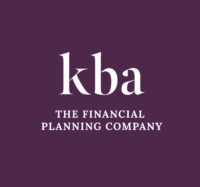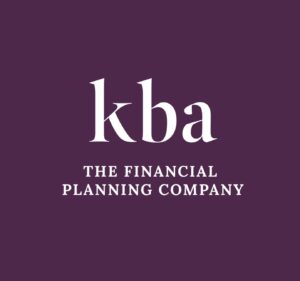If you’re a business owner, you’ll likely have thought about your exit strategy.
While you may expect to continue running your business for many years to come, when it’s time to step away and start a new chapter of life, a well-considered succession plan is crucial. Having a solid plan in place can help you enjoy a seamless transition from work to retirement.
As a successful business owner, you’ll also understand how important it is to have the right people on your team to help and support you.
Having a trusted financial planner by your side can give you access to valuable personalised expertise and guidance while shaping your exit. They can also help you to navigate your way to a secure financial future.
Read on for three top reasons to start working with a financial planner before you exit your business.
1. You’ll have someone who can translate the facts and explain how decisions will affect your future
Appointing a personal financial planner in the years before you exit your business will help you keep sight of your own goals, through the sales process and far beyond.
Wherever possible, having a complete financial team consisting of a corporate adviser, solicitor, accountant, and financial planner working in tandem could help you cover every area.
You should regard your financial planner as the person to bring all the information together and explain how your decisions might affect your personal financial plan.
2. You won’t miss out on opportunities to maximise tax savings
As a business owner, you’ll have a variety of options to reduce the tax you pay. Your financial planner will be perfectly positioned to ensure that you’re aware of all the possible tax-planning opportunities and advise where you can make tax savings.
How you choose to compensate yourself, what you can write off as a business expense, and how and where you’re making investments for your retirement are all decisions that require planning and extensive knowledge of both immediate and future tax implications.
There are various ways a financial planner may add value when it comes to mitigating tax.
For example, depending on your circumstances you may be able to take less income out of the business, allowing taxation to be deferred. Or you might wish to make use of tax-efficient investments such as Venture Capital Trusts (VCTs) or Enterprise Investment Schemes (EIS), which both carry healthy tax incentives.
 Pension contributions are also tax-deductible. With multiple ways to save towards your retirement, your financial planner will advise what might be suitable for your particular circumstances and long-term goals, while keeping an eye on the tax implications of decisions being made.
Pension contributions are also tax-deductible. With multiple ways to save towards your retirement, your financial planner will advise what might be suitable for your particular circumstances and long-term goals, while keeping an eye on the tax implications of decisions being made.
And there’s more. A financial planner can also help you understand what opportunities you may have to maximise tax allowances that apply specifically to entrepreneurs.
They could, for instance, help you claim up to £1 million in Capital Gains Tax (CGT) on the sale of your business through Business Asset Disposal Relief (BADR), previously known as “Entrepreneurs’ Relief”.
The relief allows you to apply a reduced rate of 10% CGT on the profits you make when you sell qualifying assets. If eligible, BADR can reduce your tax liability when selling all or part of your business.
Planning ahead for this is crucial, as there’s a two-year qualifying period. And professional advice is vital because rules vary depending on whether you’re selling shares in your business or disposing of the business altogether.
A great financial planner will help ensure you’re eligible and, if appropriate, help guide you in the right direction to benefit from this relief, possibly years before you’ll be ready to make use of it.
3. They’ll make sure you “know your number”
If you’re leaving your business, you’re probably going to lose your main source of income. So, it’s important to work out how much you need to generate from the sale to do all the things you plan to do next.
So, as well as practical money management, your financial planner will also talk to you about your future goals and aspirations.
Whether you’re ready to retire or preparing to move on to a brand new venture, it’s helpful to have some idea about what comes next and how much money you might need for your new chapter in life.
A detailed conversation will help to establish the objectives that are most important to you.
In conversations about your future, a financial planner will look at your goals and objectives and use cashflow modelling tools to play out a variety of “what if?” scenarios to help you understand how much money you need to achieve your dreams.
Read more: How cashflow planning can help you see into the future and why it matters
Knowing your number can help focus your thinking. If you’re planning to sell your business, having a firm figure in mind can help ensure that you negotiate the deal you need.
Having a financial planner on your team gives you a valuable resource
A great financial planner will form a strong working partnership with you. They will take on everything covered here, and more besides.
They’ll give you all the necessary information to help you make the best decisions, while also offering support, advice, and constructive opinions. Through candid support and guidance, they could help you attain more success in business, and enjoy a richer life.
Ultimately, they will provide financial peace of mind and extreme clarity for the future.
Get in touch
We’ll help you prepare a sound succession plan or exit strategy, one that ensures business continuity while aligning with your own objectives. And, when it’s time to hand over the reins, we’re here to support you through the process.
If you need a financial planner in your business, and your life, please get in touch.
Email contactme@kbafinancial.com or call us on 01942 889 883.
Please note
A pension is a long-term investment. The fund value may fluctuate and can go down, which would have an impact on the level of pension benefits available. Your pension income could also be affected by the interest rates at the time you take your benefits.
The value of investments and any income from them can fall as well as rise and you may not get back the original amount invested.
HM Revenue and Customs’ practice and the law relating to taxation are complex and subject to individual circumstances and changes, which cannot be foreseen.
Tax concessions are not guaranteed and may change in the future. Tax-free means the investor pays no tax.
For specialist tax advice, please refer to an accountant or tax specialist.
The Financial Conduct Authority does not regulate cashflow planning.
Enterprise Initiative Schemes (EIS) and Venture Capital Trusts (VCT) are higher-risk investments. They are typically suitable for UK-resident taxpayers who are able to tolerate increased levels of risk and are looking to invest for five years or more. Historical or current yields should not be considered a reliable indicator of future returns as they cannot be guaranteed.
Share values and income generated by the investments could go down as well as up, and you may get back less than you originally invested. These investments are highly illiquid, which means investors could find it difficult to, or be unable to, realise their shares at a value that’s close to the value of the underlying assets.
Tax levels and reliefs could change and the availability of tax reliefs will depend on individual circumstances.
Approved by The Openwork Partnership on 2 January 2024.


